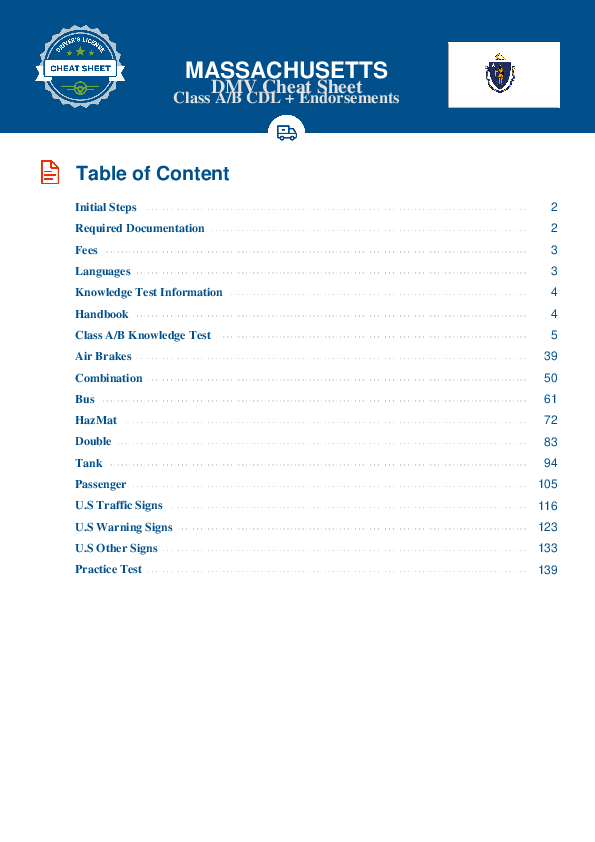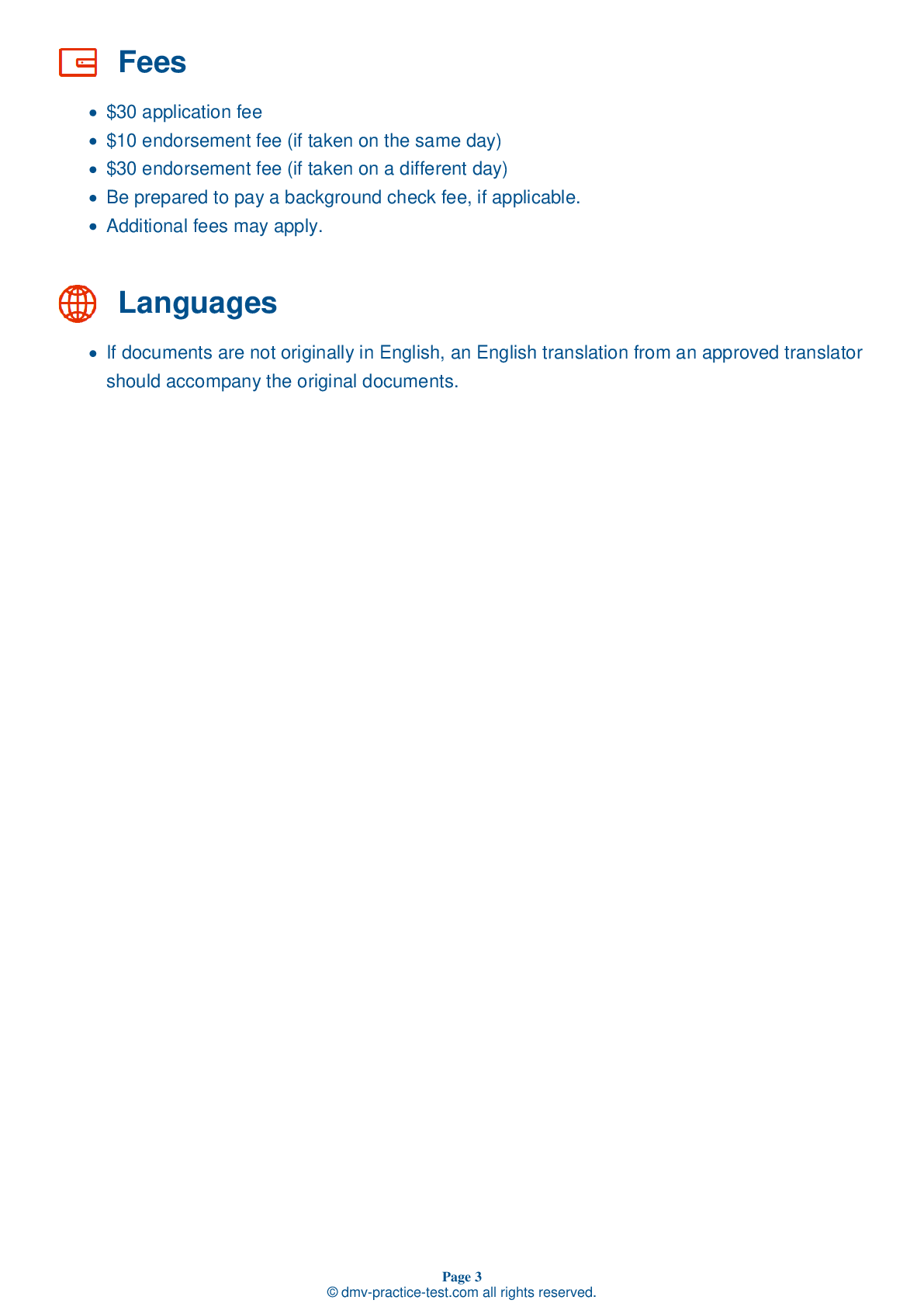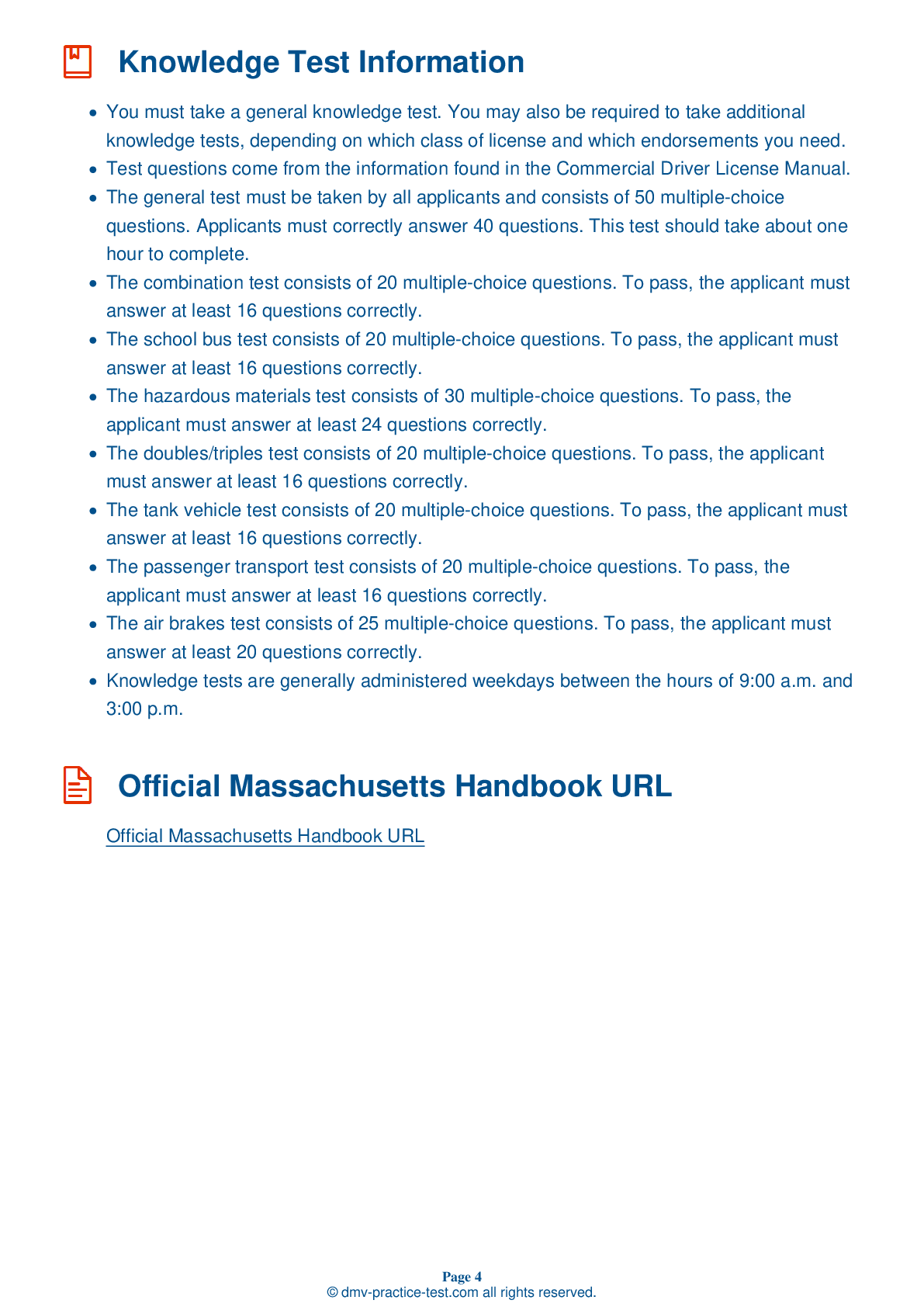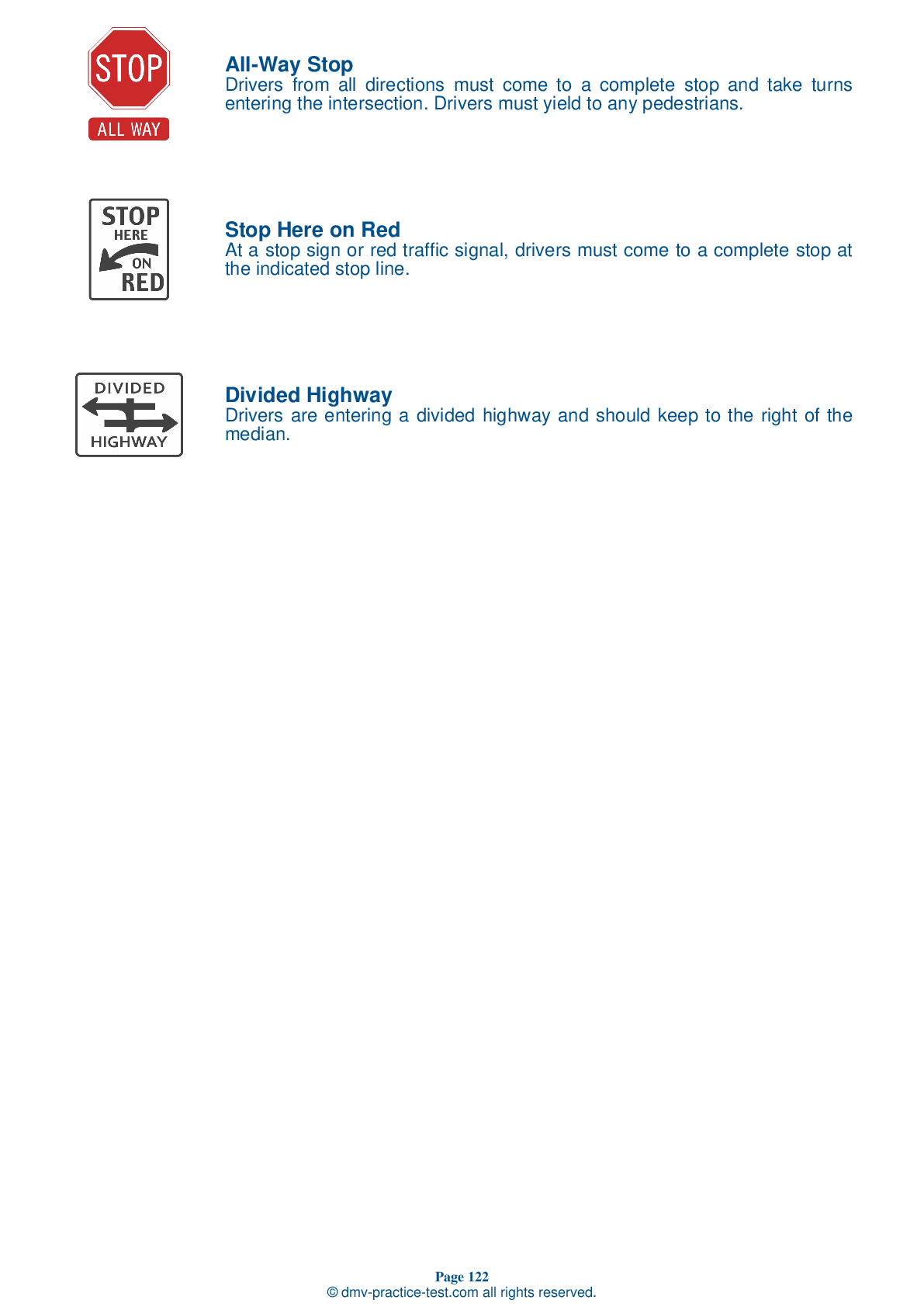Bus Driver Testing | Massachusetts 2026 #2 Page 2 of 3
Train for FREE online with our MA bus CDL test. The official exam test consists of several obligatory parts, with all of them checking your knowledge of different blocks of road rules. If you need to obtain a license in Massachusetts in 2026, learn how to become a bus driver and then practice as much as possible. Free sample tests published on our website will help you check and improve your knowledge and boost your grades. Please bear in mind that DMV requirements for a bus driver may vary from state to state.
8 . Crossover mirrors help a school bus driver see:
Crossover mirrors are used to help a driver see the danger zone area directly in front of a school bus, as well as the danger zone areas to the left and right sides of the bus, including the area from the front of the bus to the service door.
9 . When conducting a vehicle inspection, you must show each of the following, except:
When checking the oil pressure gauge as part of a vehicle inspection test, you must ensure that it is working. The gauge should show increasing or normal oil pressure, or the oil pressure warning light should turn off. If equipped with one, the oil temperature gauge should begin a gradual rise to the normal operating range.
10 . If a tornado is approaching and the bus is evacuated, where should students go?
If students are evacuated due to a school bus being in the direct path of a sighted tornado, the driver should lead them to shelter in a nearby building. If no such shelter is available, the driver should escort them to a nearby ditch or culvert. They should avoid areas that may be subject to flash flooding and should be far enough from the bus that it would not fall on them if it tipped over.
11 . Backing a school bus is:
Backing a school bus is strongly discouraged and should be done only if there is no other way to move the vehicle.
12 . When you are approaching a bus stop, the students on your bus should:
Students on a school bus should remain seated until they are told otherwise. It is unsafe for students to walk around the bus while it is moving.
13 . School bus stops may be changed by:
A school bus driver should not change the location of a stop without written approval from appropriate school district officials.
14 . When loading or unloading passengers, a bus may need to be:
When stopped to load or unload students at a stop, the transmission of a school bus should be placed in park. If there is not a park setting, the bus should be put in neutral.
See the exact questions that will be on the 2026 Massachusetts DMV exam.
99.2% of people who use the cheat sheet pass the FIRST TIME
Lillian MCcranie explains how our CDL study guide was helpful in passing the exam and recommends it to everyone.
Cameron tells us how he purchased the CDL exam, and found it to be a useful tool which helped him pass the exam and find a job.



